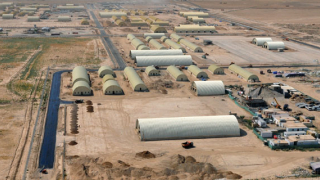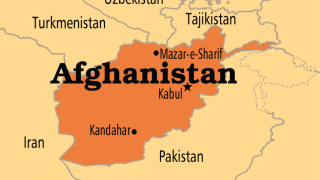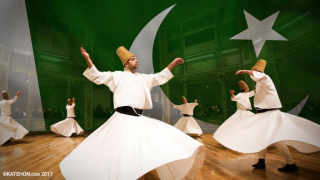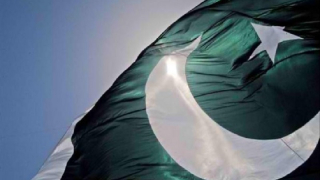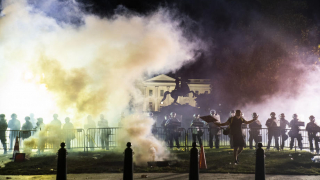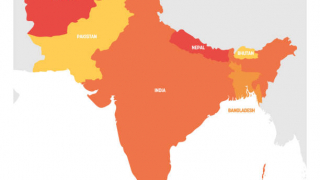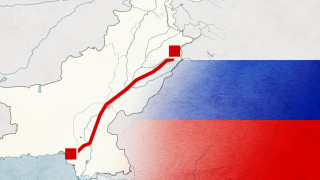Will the objective U-Turn of Trump serve Pakistan?
Leo Tolstoy has rightly stated in his illustrious novel War and Peace that “The strongest of all warriors are these two — Time and Patience.” Everywhere in the world, when there is war, the final decision is taken on the table and so is Afghanistan. After 18th year of war, US is seeking peace on the table. US President Donald Trump's recent letter to Pakistan Prime Minister Imran Khan reflects failure of American's Afghan policy. Trump took a U-turn, first he expressed irritation with Pakistan on Twitter. Then a few days later, he spared no efforts in praising Islamabad's role in regional security by writing a letter to PM Imran Khan seeking Islamabad's assistance and facilitation in achieving a negotiated settlement of the Afghan war. This is the first direct communication between the two leaders since Imran Khan assumed power. Although the contents of the letter have not been officially made public, however, it has been reported that it urges cooperation with Special representative for Afghanistan Reconciliation Zalmay Khalilzad’s. It has also been remarked in the letter that Pakistan has the ability to deny the Taliban sanctuary on its territory with the realization of the fact that Pak’s assistance with the Afghan peace process is fundamental to building an enduring US-Pak partnership. President Trump also acknowledged that the war had been costly for both the US and Pak. He emphasized that Pak and US should explore opportunities to work together and renew the partnership. Earlier the US made a series of complaints about Pakistan doing nothing in return for US military assistance and withheld military assistance valued up to $2.5 billion. Worse, Washington forbade Pakistani military personnel from training at American military academies. Trump's letter stressed that both the US and Pakistan have suffered huge losses in the war in Afghanistan and expressed his hope that Pakistan could play a more positive role in the regional peace process. The U-turn suggests a US desire to end the war decently.
Zalmay Mamozy Khalilzad the Afghan-born former U.S. ambassador to Kabul arrived in Islamabad on 4 December 2018 and held delegation level talks with senior foreign ministry officials before paying the courtesy call to Prime Minister Khan. The Trump administration has tasked him to persuade the Taliban to join Afghan peace process for ending the protracted war. According to Washington Times U.S. Defense Secretary Jim Mattis says he's not worried about Islamabad retaliating against Washington over its suspension of as much as $2 billion in military aid this week. In his statement Jim Mattis has further added that Pakistan Must “Get On Board” with Afghan Peace Talks.
PM Imran Khan maintained that he responded positively to the request. “I have promised Islamabad will make all possible efforts to help resolve the Afghan conflict.” As Pakistan has always advocated a political settlement to end war in Afghanistan, the US suggestion has been welcomed. Pakistan reiterates its commitment to play a facilitation role in good faith. Peace and stability in Afghanistan remains a shared responsibility.
Contrary to the common misconception, the Soviet invasion in Afghanistan posed a serious threat to the interests of global powers, more than it posed to Pakistan’s existential survival. Pakistan was only used as a buffer state. The geo-strategic location of Pakistan plays a very significant role in influencing and shaping the dynamics of the region. Unfortunately, Pakistan’s foreign policy has always lacked a coherent framework and vision to recognise this predesigned and strategically cordial setup. Instead of turning its strategic location into an asset, Pakistan has turned its location into a curse that the foreign countries, especially the super powers, have exploited since the country’s inception. International community, including the US, recognises the fact that no peace is possible in Afghanistan without an active support and cooperation of Pakistan. Relationships with United States (US) were more of transactional nature and Pakistan miscalculated its strategic relations with the US. The US interests in the past and even today in South Asia regions were totally contradict with the national interests of Pakistan. Pakistan must review its relationship with the US in view of own national interest.
We have had very bizarre relationship with the US. We miscalculated our relationship with the US as our strategic ally, which proved wrong throughout different historic events such as containment of Communism, Cold War and Now containment of China. All this was not in interest of Pakistan, but of the US as its regional interest. The unending involvement in Afghanistan as US’ ally has plunged Pakistan into a crisis that keeps haunting the nation till date. Building of India as regional power by US, isolation of Iran and containment of China are the major US interests in South Asia region. US can never be our natural strategic ally, though, issues might be of common nature, but the interests are totally different.
Trump bashing of Pak has continued since he launched his South Asia and Afghanistan strategy despite multiple attempts made by the two governments to fix the cracks in their ties. Recently, a row that began with Trump's interview to Fox News led to a series of tweets by both the US head of state and PM Khan. President Trump, while talking about the reasons for ending the over a billion dollar annual aid for Pak, said the country didn’t do “a damn thing for US”. However, Pentagon in an attempt to control the damage admitted its special ties with the Pak military.
Such statements indicate that Trump and the US cabinet, institutions, judiciary, security agencies and the Pentagon are not in consonance and harmony with each other or at least with Trump. It is appreciative that the sense has prevailed this time and the development could help ease tension between Washington and Islamabad – although historically such exhilarations have remained temporary. Pakistan has also welcomed the U.S. president's outreach and for understanding that no peace in Afghanistan would be possible without involvement of Pakistan which duly expects that instead of censuring her, an atmosphere of congeniality would prevail between these decades old partners which would lead to maintaining peace in the region.
In the backdrop of recent Pak-US romance, Pakistan should not be compromising its own national interest and continue to strengthen its relation with China and Afghanistan. The more influence of India in Afghanistan is more danger for us. Pakistan should not be hostage of the US interest as a number of peace talks were sabotage and destroyed by the US itself, which shows the US resolve to peace in the region. All the power brokers of Pakistan need to sit together and well-coordinated response should be given to the US. South Asia as a region remains at the forefront of the United States’ regional interests and concerns. Trump’s administration has brought a mix of change and continuity in the country’s foreign and security policies, including those in south Asia. Pakistan should continue to review its position with the changing scenario.
Pakistan’s leadership should also learn that only political and economic stability can play a vital role in bringing this country back to a strong position and to overcome major regional issues. Good relationship with its neighbouring countries is also very important. Currently Pakistan is busy on both eastern and western borders. That’s why she needs to build good working relationship, at least, with her western border countries. Otherwise CPEC and some other mega projects will not profit it. Only a rational and objective policy based on cold intellectual calculations can positively help Pakistan exploit the advantages of its geo-strategic location smartly enabling it to benefit itself from the recent “objective U-turn” of Trump.


